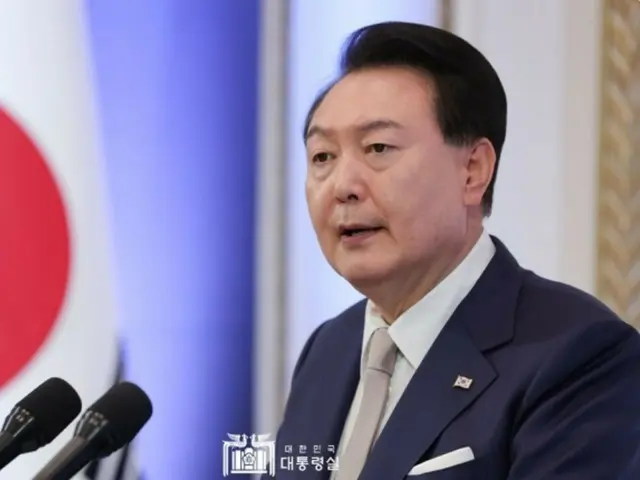The Hankyoreh, a South Korean newspaper critical of the Yoon administration, said in an editorial dated the 14th, "If things continue as they are, it would not be surprising if the vote fell below 20%. If eight or nine out of ten people turn their backs on the president,
"Even if the government were to turn a deaf ear to the warnings of the people, there is little that can be done," he said, expressing concern that "if we turn a deaf ear to the warnings of the people, we risk facing a tipping point where the public will becomes irreversible."
On the 3rd, at the National Unity Committee, which reports directly to the President, he emphasized that "the progress of reform will not stop." He reiterated his intention to promote the four major reforms he has set out: pensions, medical care, education, and labor.
In April of this year, South Korea held a general election, which was seen as a mid-term evaluation of the Yoon administration and drew attention. The ruling party, the People Power Party, which supports the Yoon administration, won 108 seats, while the largest opposition party, the Communist Party, won 103 seats.
The Democratic Party won 175 seats in the House of Representatives, resulting in a crushing defeat for the ruling party. Meanwhile, the opposition parties did not reach the 200 seats required to pass a bill to amend the constitution or impeach the president, but
After the general election, President Yoon's approval rating fell to 21% in the fifth week of May, but it gradually recovered after that, reaching 29% in the third week of July.
However, President Yoon's approval rating has once again started to decline due to the heated debate over the government's February plan to increase the number of students admitted to medical schools as a measure to address the shortage of doctors.
The medical community has reacted strongly to the plan. Trainees have left the hospital en masse, leading to a shortage of staff at large hospitals. The number of new patients accepted has been restricted, leading to a flow of patients to mid-sized hospitals, putting pressure on their operations.
The impact has spread throughout the medical community. The medical system is still in disarray. On the 29th of last month, President Yoon held a press conference to outline the direction of his administration. The pension and other measures proposed by the Yoon administration are as follows:
He emphasized that reforms in the four areas of healthcare, education, and labor will be "definitely realized." He said, "This is an issue that depends on the survival and future of Korea." Regarding the increase in the number of students in medical schools, he said, "We're done with increasing the number of students in medical schools.
"As a result, we will focus our policy capabilities on the revitalization of regional and essential medical care, which is the essence of the reform. Recruitment for medical school admissions for 2025 is currently proceeding smoothly," he said.
According to a poll released by Gallup Korea on the 13th, President Yoon's approval rating was 20%, the lowest since he took office. The most common reason for disapproval was his "medical
By age group, approval ratings for those in their 70s and above dropped by 23 points from three weeks ago, and the South Korean newspaper Hankyoreh reported that "there is a danger of medical shortages due to 'emergency room rotations'."
"The fact that the health crisis is becoming a reality is thought to have caused older people, who are sensitive to health issues, to turn their backs on the government," the report said. The approval rating for the ruling People Power Party, which supports the Yoon administration, was 28 percent, and this party has also been in the red since taking office.
The number of students admitted to medical schools has reached a new low. In an editorial dated the 14th, Hankyoreh pointed out that "if this were a country with a parliamentary cabinet system, the cabinet would have already resigned en masse." Regarding the confusion in the medical field caused by the expansion of medical school admission quotas,
"(President Yoon) is speaking to people who are worried about the worsening 'emergency room shuffling' and says, 'The emergency system is running smoothly. Go to the emergency room.'"
"Without providing any evidence, the government has pushed ahead with an increase of 2,000 students in medical school enrollment, but has not yet begun to take concrete steps to address the issue," the editorial concluded.
"I want everyone to seriously recognize that this is a crisis," he said. On the 16th, the results of a survey by the polling company Realmeter were also released, showing that President Yoon's approval rating was at its lowest since he took office (27th).
%).
2024/09/18 15:05 KST
Copyrights(C)wowkorea.jp 5

